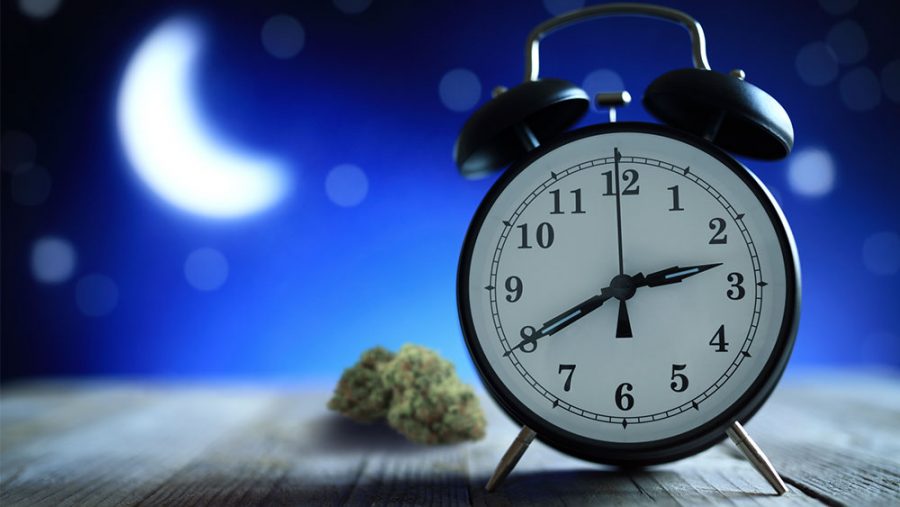First ever clinical trial into cannabis for insomnia returns promising results
Researchers in Australia have published initial results from a clinical trial on cannabis for chronic insomnia. Based on the team’s findings, improvements in sleep quality were dependent on the dose of a specific novel cannabinoid formulation.
This is the first placebo-controlled clinical trial ever to be conducted into the plant’s therapeutic potential for relieving sleep disturbances in insomnia patients. According to global statistics, the sleeping disorder affects as much as 50-60 percent of the population.
Although the clinical trial on cannabis for chronic insomnia has not been analyzed by a board of scholarly reviewers, nor has it been published in a journal, the outcome indicates that the treatment may not cause adverse effects in patients.
Previous trials into the potential of medicating with cannabinoids – the naturally-occuring chemical constituents of the cannabis plant – have also demonstrated positive results in this area. However, prior studies haven’t specifically focused on insomnia but rather, health conditions that may disturb sleep patterns.
Clinical trial on cannabis for insomnia kicked off in 2018
Since the commencement of this study on cannabis for insomnia in 2018, the team of Australian researchers made it their mission to determine the efficacy of a unique proprietary cannabinoid formulation on patients who suffer from chronic insomnia. Funded by medical cannabis company Zelira Therapeutics, the independently-conducted study was carried out by a group of researchers at the University of Western Australia.
A total of 23 study subjects were selected to participate in the double-blind, crossover trial, each of whom received either a placebo or an active dose of the cannabinoid formulation over a two-week period. Those who received the active dosage were invited to – depending on symptom severity – be administered with a single or double dose of oil beneath the tongue. The results were gathered using data stored on sleep trackers; the study subjects wore trackers on their wrists. In addition to this, study subjects self-reported symptoms using the Insomnia Severity Index (ISI) — a questionnaire-type clinical (tool).
Not only did the cannabinoid-administered subjects experience a longer duration of rest throughout the night but reportedly, they also felt calmer when they woke up. In comparison with subjects who received a placebo, a 26 percent dose-responsive reduction in ISI scores was noticeable. This increased to 36 percent among individuals who took a higher dose; shifting the insomnia diagnosis from moderate to subclinical.
“This study represents the most rigorous clinical trial ever undertaken to assess the therapeutic potential of medicinal cannabis to treat the symptoms of chronic insomnia,” says lead researcher, Professor Peter Eastwood from UWA’s Centre for Sleep Science.
Clinical trial on cannabis for insomnia used unique cannabinoid formulation
The Australian study on cannabis for insomnia would not have been possible without Zelira Therapeutics, which provided the cannabinoid formulation. Currently, the formulation – referred to as ZTL-101 – is unknown. What we do know, however, is that it contains an unspecified ratio of THC and CBD; CBD (cannabidiol) is the non-psychoactive constituent of the cannabis plant and THC (tetrahydrocannabinol) is the plant’s primary psychoactive compound.
“The fact that ZTL-101 treatment achieved statistically significant, dose responsive improvements across a broad range of key insomnia indices is impressive, particularly given the relatively short two-week dosing window,” said Eastwood, who believes that the benefits of using cannabis for insomnia may improve with higher doses and frequent consumption. However, this was not explored during the study.
“Positive patient experiences with minimal side-effects are critical to the success of any insomnia drug and highlights the potential for ZTL-101 to address a key area of unmet need,” he added. “It is likely that further improvements in efficacy could be achieved by dosing over a longer period and potentially at higher doses.”
Zelira intends on making its cannabis-derived treatment available to insomnia sufferers later this year.








